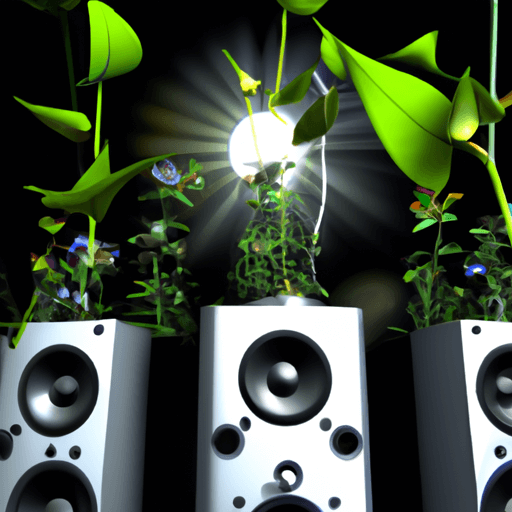Exploring the Connection Between Music and Plant Growth
Cushioning the tendrils of botany and music is a fascinating subject matter that seems to fuel both speculation and scientific research: the effect of music on plant growth. This comprehensive article explores numerous research studies investigating this intriguing intersection and illuminates the potential influences of sound waves on plant health and development.
Scientific Research: Effects of Music on Plant Growth
Several experimental studies have attempted to delve into this mystifying phenomenon. One of the most famous examples is the research by the Indian botanist Dr. T.C. Singh, who, in 1962, discovered that balsam plants grew at an accelerated rate when exposed to music, specifically, classical melodies. In his experimentation, he observed a substantial increase in the plants' biomasses of about 20% in height and 72% in biomass.
Similarly, in 2007, a team of South Korean researchers studying the characteristics of rice plants observed that their growth rate improved when exposed to classical music, specifically sequences from Beethoven’s compositions.
The Role of Frequency and Vibration
It's crucial to understand that plants don't 'listen' to music in the way humans do. Instead, they respond to the sound's frequency and vibrations. It has been demonstrated that plants respond more favorably to high-frequency vibrations, such as violin music, than they do to lower-frequency sounds like those found in rock or rap music.
Dorothy Retallack’s experiment in the late 1970s is a significant example. In her research, Retallack demonstrated the effect of different genres and submitted that plants exposed to classical and soft music like Ravi Shankar’s sitar music grew towards the music source and showed optimal growth. However, the same plants, when exposed to rock music, grew away from the music source and eventually died.
Expert Opinions and Discussions
While these experiments make a compelling case for the connection between music and plant growth, some scientists argue that more rigorous, controlled studies are needed to establish this relationship conclusively. Others point out that the stimuli plants receive in a natural environment are far more than what's replicated in these experiments, suggesting that plants deal differently with the sounds around them.
The Future: Is Music the Key to Sustainable Farming?
If proven internationally applicable, this research could revolutionize agricultural practices, paving the way for more sustainable farming. Music, or more specifically, sound waves, could provide an alternative to chemical fertilizers and growth hormones, offering a more organic and environmentally friendly approach.
While the verdict is still not unanimous on this intriguing intersection of music and plant growth, the positive effects observed in a number of case studies make it a fascinating area for future exploration and research. Who knows, the simple act of playing music could be the future of sustainable farming. The stage certainly seems set for an exciting crescendo.




















Comments
Leave a Comment